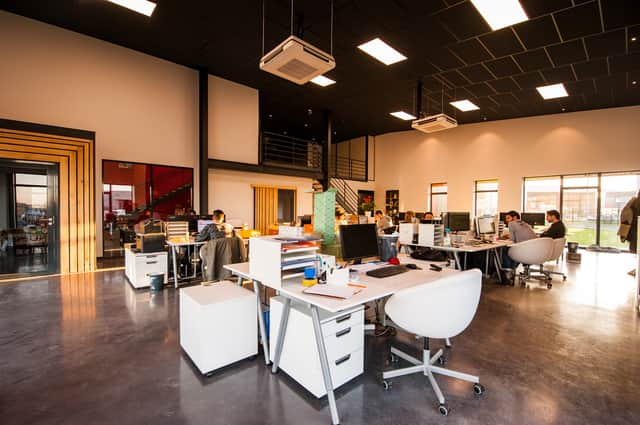Millions of employees think their company is ‘stuck in the past’ when it comes to technology and working practices


A study of 1,500 UK office workers found 31 per cent believe crawling internet speeds are a sign of an old-fashioned office - and a quarter cite out-of-date fax machines as the ultimate sign of being behind the times.
And more than one in five think companies using Microsoft tools like Word or Excel – from 2003 – are stuck in the past.
Advertisement
Hide AdAdvertisement
Hide AdBut it’s not just technology that is leaving some companies trailing as despite huge strides being taken in mental health awareness at work, 49 per cent feel their own company is behind the times when it comes to wellbeing.
A tenth feel their employers still frown upon staff taking personal phone calls, and a little under one in five still have no flexible hours.
A spokesperson for communication solutions specialists Enreach, which commissioned the report, said: “Our research shows how many businesses are in need of a technical upgrade – and seem to be stuck in the 1980s.
“It can be really frustrating to work with old fashioned technology – there’s nothing worse than slow or outdated technology stopping you from doing your job properly.
Advertisement
Hide AdAdvertisement
Hide Ad“But on the other hand, there’s a danger of being too high-tech and confusing staff with systems that end up being problematic.
“The study also found businesses also have lots of work to do when it comes to modernising their attitudes to mental health and general wellbeing.”
The study also found eight in 10 respondents think having out of date tech – and business practices – can seriously hinder company growth.
And 56 per cent feel their job is made much harder than it needs to be, simply by using borderline obsolete technology.
Advertisement
Hide AdAdvertisement
Hide AdLoading....
Half the working day
As a result, nearly half an hour of every working day is ‘wasted’ trying to get their old office equipment to work.
When it comes to flexible working practices, 31 per cent of adults would most enjoy a shorter working week.
Another 23 per cent believe staff should be able to take a ‘wellbeing day’ when they need to recharge their batteries.